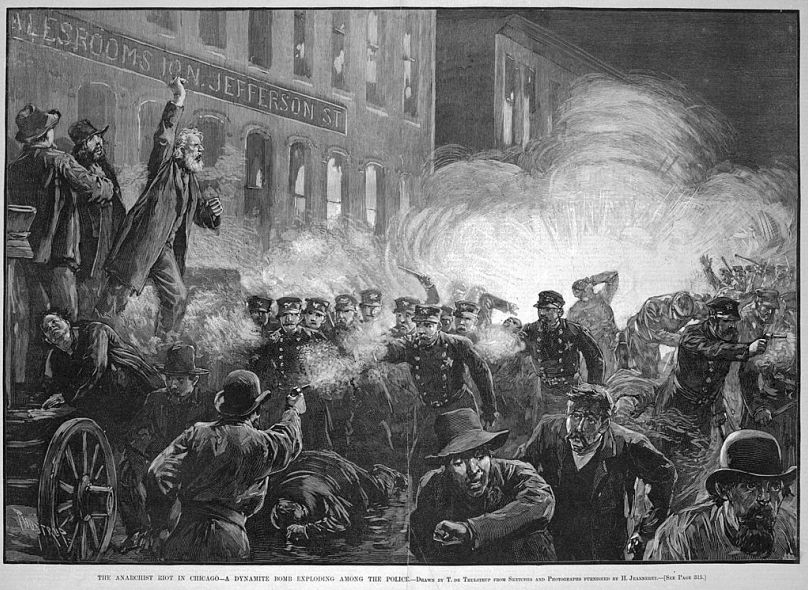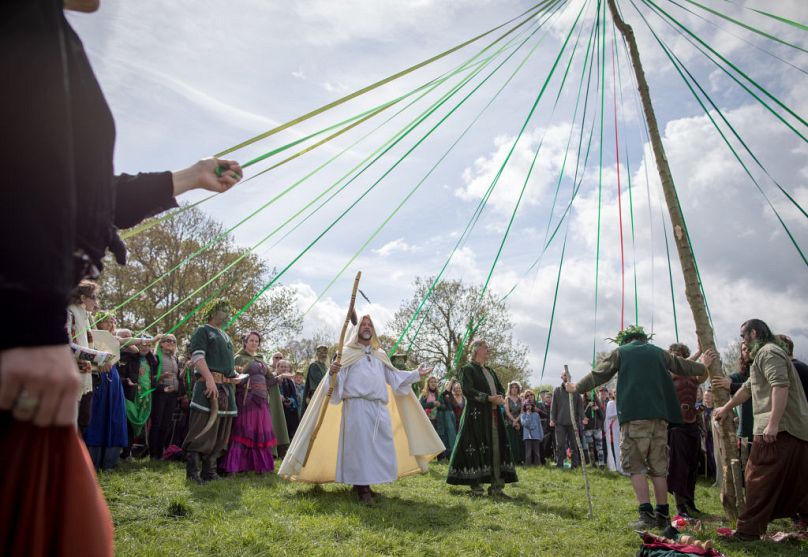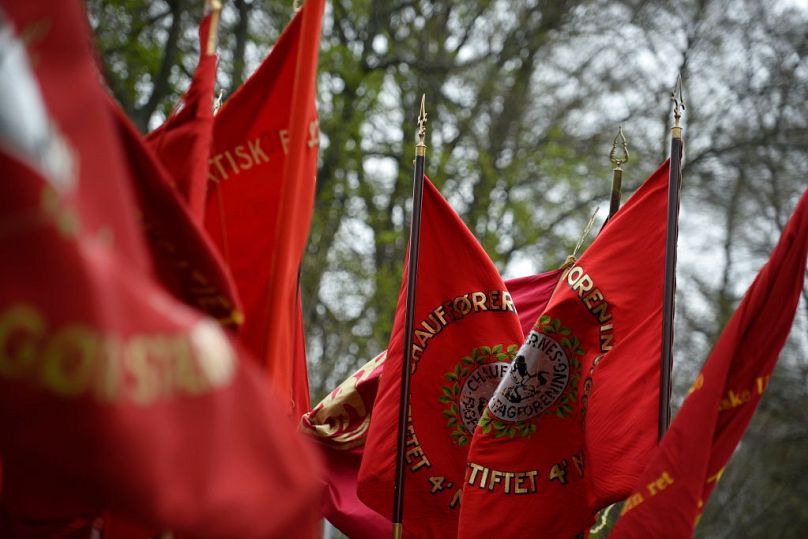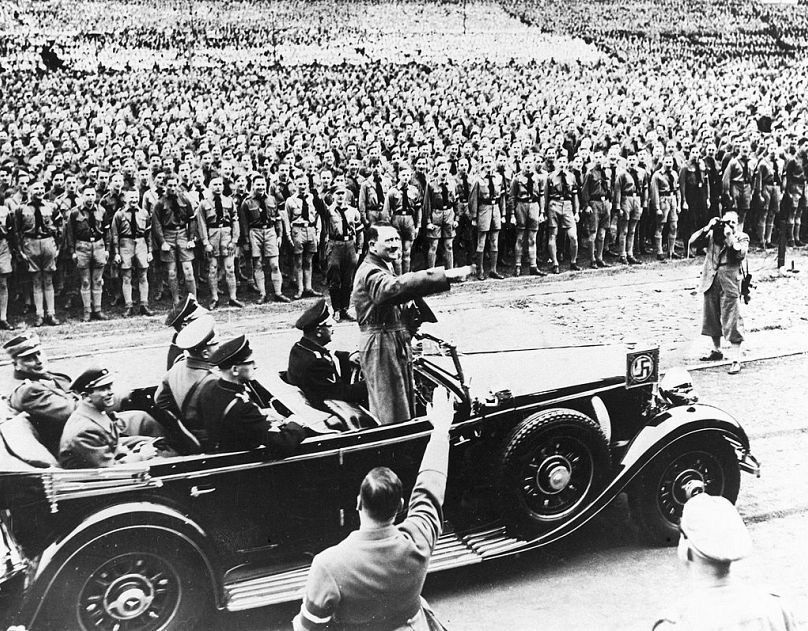The first day of May marks a global celebration to honour the contributions of workers, representing a key moment for trade unions to call on governments for stronger labour rights.
Recognised by dozens of countries worldwide, Labour Day occasion has been consolidated over the decades as an ubiquitous part of the annual calendar.
In Europe, events range in size and shape from nationwide celebrations to decidedly quieter affairs.
Euronews Culture takes a look at the history of the occasion - and what could be in store for Labour Day in the future.
What’s the history behind Labour Day?
Also known as International Workers Day, Labour Day is often seen as possessing a strongly European character but, in actual fact, the occasion traces its roots to the two other continents.
On 21 April 1856, stonemasons in Melbourne, Australia protested what they deemed were untenable labour conditions. The workers eventually bagged a victory, reaching an agreement with employers that led to the establishment of the eight-hour working day. This success served as an impetus for further action and mobilisation against workers, especially in the United States.
Labour Day, as we refer to it today, has its foundations in North America, too. In May 1886, a violent crackdown on protesters in Chicago - known as the Haymarket affair - saw numerous deaths and injuries after a peaceful rally in support of workers striking for an eight-hour work day. This led to the Second International in Paris calling for demonstrations to be held in its memory four years later.
By the end of the 19th century, many European countries had taken inspiration and Worker’s Day had gone global.
The US and Canada now have their Labour Days (spelt “Labor”) at the beginning of September, but the occasion is most commonly marked in May.
A look at May Day across Europe
Most European countries, bar a few, give workers a holiday to mark Labour Day.
It’s a day which sees protest banners sit shoulder to shoulder with flowers; workers’ demonstrations are linked with longstanding ‘May Day’, often pagan-inspired spring rites - from Northern Europe’s Maypoles, to Britain’s ‘Jack in the Green’ celebrations, to Greece’s Protomagia flower-picking.
In the United Kingdom and Ireland, May Day is typically seen as a welcoming of summer and its colourful folklore has not been eclipsed by Labour Day’s more politicised character.
Floral festivities are still all the rage across towns and villages in the UK and Ireland. Consequently, both countries recognise the first Monday of the month as a bank holiday, rather than International Worker’s Day.
Across the Channel, however, the day has acquired a decidedly more political spirit. In France and Italy - two nations in which unions are afforded a particularly powerful role - 1 May marks an important moment for worker’s movements to have their voices heard.
The former is in the grip of a wave of popular unrest following President Emmanuel Macron’s introduction of controversial pension reforms, and, as such, Labour Day this year possesses a particularly visceral significance. A major demonstration organised by French trade union confederation CGF will be held in Paris and pass in front of the Place de la Bastille - the most symbolic location of the French Revolution.
As for the latter country, Rome’s left-leaning San Giovanni neighbourhood will, per tradition, host a large open-air concert that has already attracted some of Italy’s biggest pop stars.
In Eastern Europe, May Day has a particularly historic significance, due to the value bestowed upon the holiday by the Soviet Union and Warsaw Pact states. Over time, however, the distinctly Communist nature of the occasion has been replaced by more apolitical celebrations.
Over in Scandinavia, Denmark - often seen as an oasis of social democracy and fair working traditions - does not give workers the day off. This, nevertheless, has not stopped unions from rallying peacefully every year. The beating leftist heart of such events is palpable - from the sea of red flags descending upon the capital’s public spaces to the popularity of Socialist hymns such as “When I See a Red Flag” ("Når jeg ser et rødt flag smælde").
In the nearby Netherlands - where May Day is also not recognised as a public holiday - worker’s celebrations, on the contrary, barely occur.
What is the significance of International Workers’ Day?
Throughout the decades, International Worker’s Day has been appropriated by parties across the political spectrum.
Indeed, even the Nazis recognised Labour Day - despite dissolving trade unions a 24 hours after their first May Day in office.
All of this notwithstanding, the widespread adoption of neoliberal economic policies since the 1980s, as well as the increasing displacement of manual workers by automation technologies and the weakening of trade unions are all seen as threats to labour rights. The massive upsets triggered by the COVID-19 pandemic further exacerbated the issue, while simultaneously highlighting the life-saving importance of essential workers.
This has not stopped unions and political movements from marking the occasion and, on the contrary, this year’s Labour Day will be a particularly significant one across Europe, seeing disruption across various nations, from railway strikes in Italy to pilot walkouts in Spain.
Speaking to Euronews Culture, Alberto Civica, the secretary of the Rome chapter of Italy’s UIL union, claims: “Work isn’t valued in our current day and age. As such, the 1 May this year is particularly important because it allows us to bring forward our proposals”.
The European Union has, moreover, continued to emphasise the importance of the occasion in official communications.
In a statement released last week, Commissioner Nicolas Schmit honoured Labour Day while lamenting the ongoing Ukraine war and noting the EU’s commitment to “supporting the integration of people fleeing the war into the EU labour market”.
“The EU remains committed to preparing people for the changing world of work. This means investing massively in skills”, Schmit stated. “The need to nurture talent in Europe is urgent, with labour shortages reported in key sectors and more than three quarters of companies struggling to find workers with the requisite skills”.
Schmit added: “(Labour Day) is an important occasion to recall that the Commission is committed to ensuring fair working conditions and strong labour rights for all workers in the EU, wherever they are from.”







